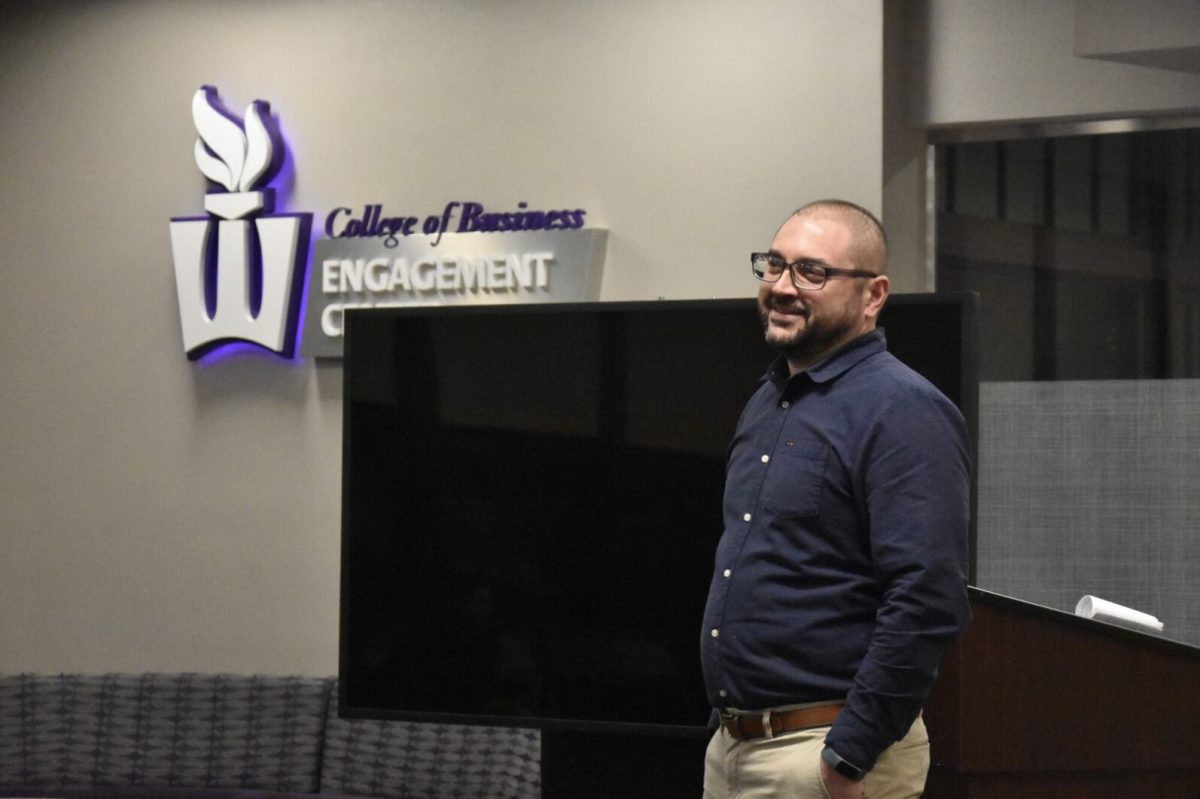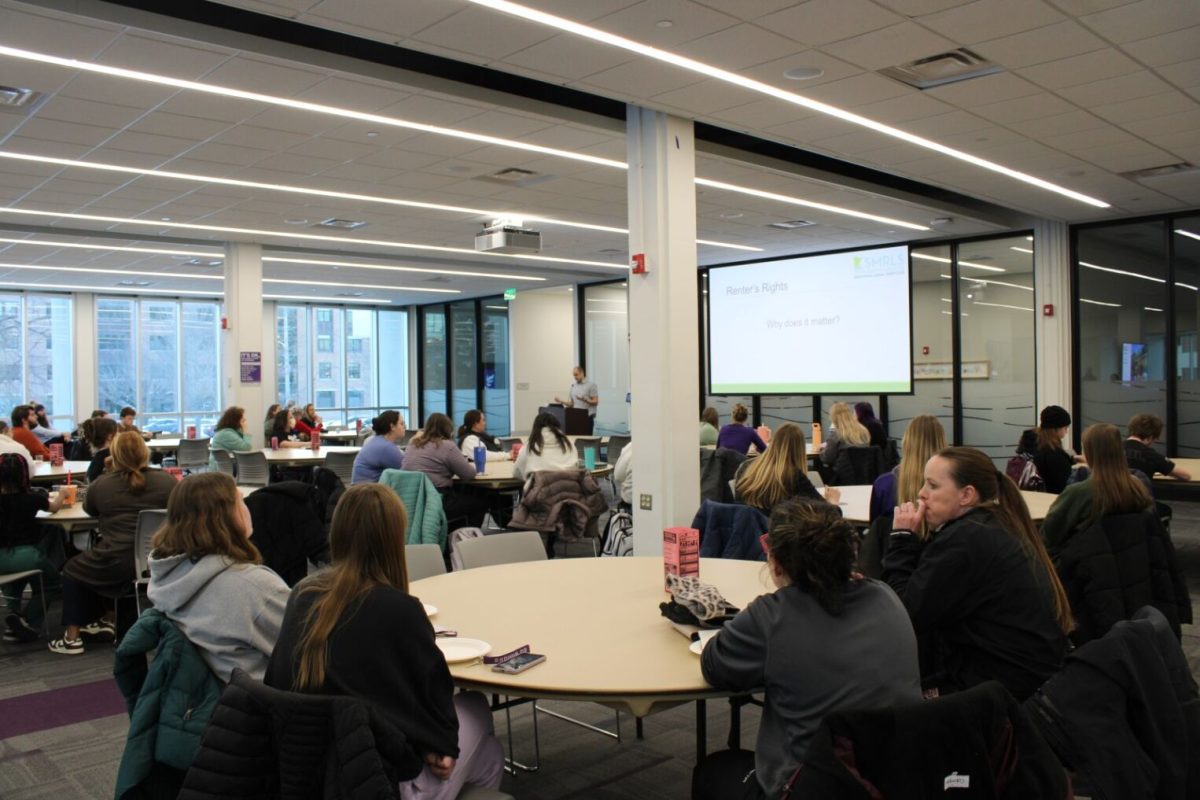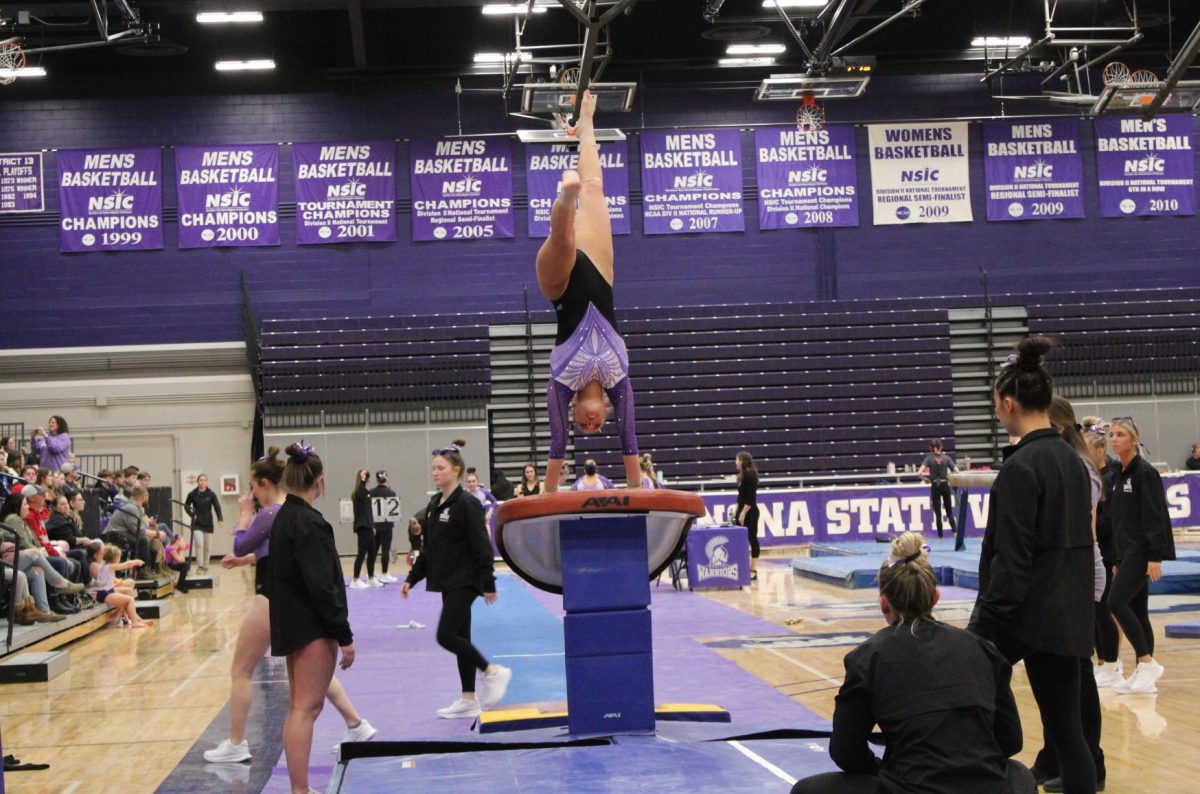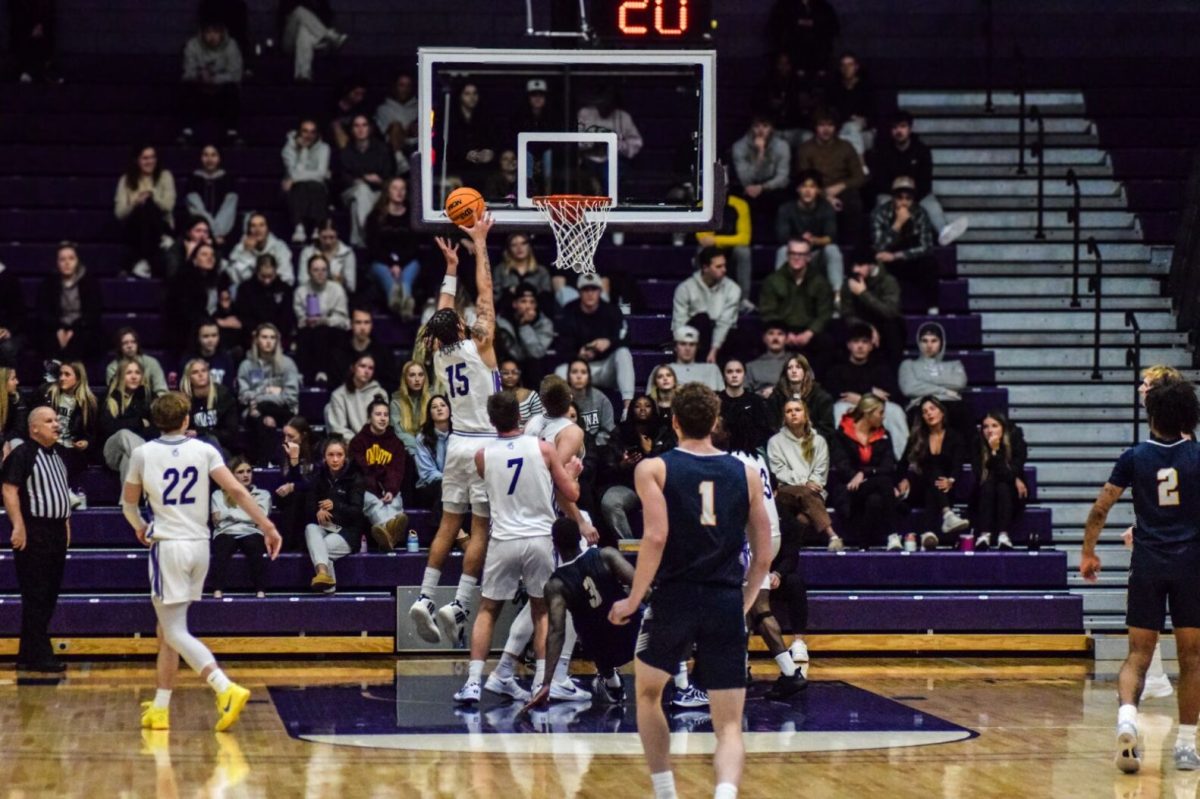Elizabeth Pulanco/Winonan
As part of the Digital Culture Speaker Series, Winona State University invited Scott Rettberg of the University of Bergen in Norway to give a presentation on the changing landscape of digital media.
Rettberg is part of a digital revolution that he believes has the potential to change the way society uses and benefits from literature and film.
Among Rettberg’s current projects is a film called “Toxicity.” “Toxicity” documents the experiences of people living near the polluted Delaware River. This river is affected by years of toxic waste being distributed into the water from nearby factories.
At the presentation, he touched on his current project and showed students a new way to think about art media in a digital age.
Junior Anne Swanson was anticipating the presentation, eager to learn more information that could be helpful to her field.
“I’m an advertising major, so it would be interesting to learn more about how to incorporate more technology into advertising,” Swanson said.
Junior Sydney Norman was also looking forward to the presentation. She and other attendees were looking forward to seeing something they hadn’t seen before.
“It is great to be able to expand my knowledge with these new ideas,” Norman said.
Some of Rettberg’s most interesting work is with electronic literature. At the presentation, Rettberg showed the audience his work with a computer program that could generate poems.
“I took 200 of the most popular words in the English language and put them into this program that can generate several thousand lines of poetry,” Rettberg said.
The poetry generator creates a new poem every time the program is entered. As technology keeps changing and advancing over time, Rettberg said, there is a possibility that novels and stories may be generated electronically as well.
The poetry generator can also incorporate different poetic elements of poetry into each poem. For example, the program lets the user select rhymed or unrhymed poetry. The program also lets the user select the form of the poetry, whether it is a haiku or a Shakespearean sonnet.
Rettberg’s more recent work has transitioned from literature to film. Similar to the poem generator, the film generator creates a film from samplings of clips and audio. Every time the film is played, the order of the 160-voiceover narrations and the pictures and film clips is different.
Rettberg’s work has been featured at the Beall Center in Irvine, Calif., the Slought Foundation in Philadelphia, and at the Krannert Art Museum and the University of Illinois.








































